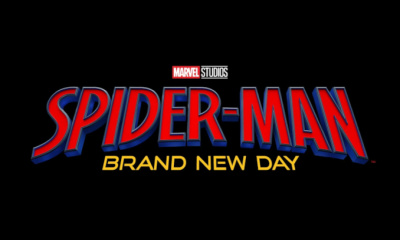 One bit of New Age wisdom that entrepreneur types love to throw around is that it’s good to fail. Failing is just a byproduct of risk taking and helps us learn to do it better the next time, you see.
One bit of New Age wisdom that entrepreneur types love to throw around is that it’s good to fail. Failing is just a byproduct of risk taking and helps us learn to do it better the next time, you see.What these business Jedis mean is that it’s better to fail first, then succeed. Succeeding a little bit at first and then failing? Not so good.
Just ask the folks at Graphicly, the digital comics distributor that called it a day last week, liquidating the company as senior executives jumped ship to a different startup called Blurb. Better yet, ask the people who did business with them as suppliers or customers, since they’re the ones holding the bag.
Coulda been a contender. Back in the early days of digital comics, around 2008 or 2009, Graphicly seemed like a plausible competitor in a promising market.
At that time, digital distribution still represented a huge risk for a minimal reward, especially to companies like DC and Marvel that could ill-afford to alienate their traditional supply chain in pursuit of readers who might not even exist. They were too big to fail at something like that, so they didn’t try.
That left the field open to nimble startups with nothing to lose: companies like iVerse, comiXology and Graphicy, who were all figuring out ways to present and sell comics on cell phones and PCs. When the iPad arrived to provide the platform that digital comics had been waiting for, it was these folks at the bleeding edge, not the big guys, who were ready and waiting with the technology to exploit the market.
ComiXology, with what would prove to be the winning strategy, was quietly securing agreements with the big publishers, working with Apple to enable seamless in-app transactions, and perfecting its Guided View interface. iVerse had announced a partnership with Diamond to create retailer-centric storefronts, which seemed like a plan with a reasonable chance of success had all parties been able to execute on it quickly.
Graphicly, making a virtue of having been outmaneuvered behind the scenes, was beating the drum about creator empowerment, positioning itself as the champion of the independent artist and next-generation reader with more eclectic taste in graphic literature.
Creative positioning. Of the three messages, Graphicly’s was definitely more press-friendly. The comics universe was not accustomed to the kind of Silicon Valley entrepreneurial bravado that CEO Micah Baldwin brought to his panel appearances and press releases, where his boisterous table-pounding persona contrasted with the earnestness of iVerse’s Michael Murphy and the cool detachment of comiXology CEO David Steinberger.
Partly because of this creator-first rap, and partly because comiXology at that time was focused on its big publisher strategy and not accepting submissions, a lot of small and independent publishers ended up on Graphicly in the early ‘10s.
Only room for one winner. Unfortunately, the digital comics market, for various reasons, could not accommodate a multitude of competitors. Part of that was technology-driven. To protect the content, each digital distributor used different digital rights management (DRM) technology and hosted their comics in the cloud in a format meant to be read through their own proprietary apps.
Readers who wanted a single point of entry to their digital collections had strong incentives to settle on one primary platform. As it became clear that comiXology was the only place to get DC, Marvel, Image and other top books in one place, the numbers swung strongly in their favor, leaving the other players out in the cold.
Frozen out. This development was bad for Graphicly, which rolled up its digital storefront in 2012 in a "pivot" to becoming middleware for other kinds of e-publishing – but it was even worse for the creators who believed the hype and had put their trust in the platform.
To make matters worse, Bleeding Cool reports that Graphicly may have been systematically misreporting sales figures and failing to make payments to creators for a while. These unpaid folks – many of whom represent the small, vulnerable independents who can least afford to take a hit – now join the long line of creditors waiting for the court to dole out the assets of the liquidated company.
Vanished in the cloud. And what about readers? Graphicly is encouraging creators to download and resell their properties elsewhere, but what happens to the books that thousands of customers bought and paid for? In best case, if they’ve been cached locally, they are eternal prisoners of a dead app. If not, they’re gone: vaporware in the most literal sense.
This is the nightmare scenario for cloud computing writ large, not just in comics. When a cloud provider goes away, customer data goes with it. Providers protect themselves with the fine print in their user agreements, which stipulate that customers are buying the rights to access the content, not the content itself, but that point is a hair too fine for most people.
Put it this way: if DC were to go out of business tomorrow, Dan DiDio would presumably not come to your house and remove copies of Batman and JLA from the longboxes in your basement. But that’s the risk digital readers run every day when they buy bits instead of atoms. Comics that people paid real money for could vanish overnight, and the proceeds promised to creators could vanish along with them.
Risk and reward. Startups fail all the time; it’s part of the game. That’s why investors take such a pound of flesh for their early-stage money, and why failed entrepreneurs so frequently land on their feet – as the Graphicly team seems to have done.
As the Zen masters of Silicon Valley are so quick to remind us, failure in entrepreneurial ventures is part of the "creative destruction" that keeps capitalism moving. It’s just too bad that in the case of Graphicly, it’s creators who bear the costs of destruction while the entrepreneurs bask in the glow of the insights purchased with borrowed dollars and broken trust.
--Rob Salkowitz (@robsalk) is author of Comic-Con and the Business of Pop Culture and a business consultant in Seattle.
The opinions expressed in this column are solely those of the writer, and do not necessarily reflect the views of the editorial staff of ICv2.com.







